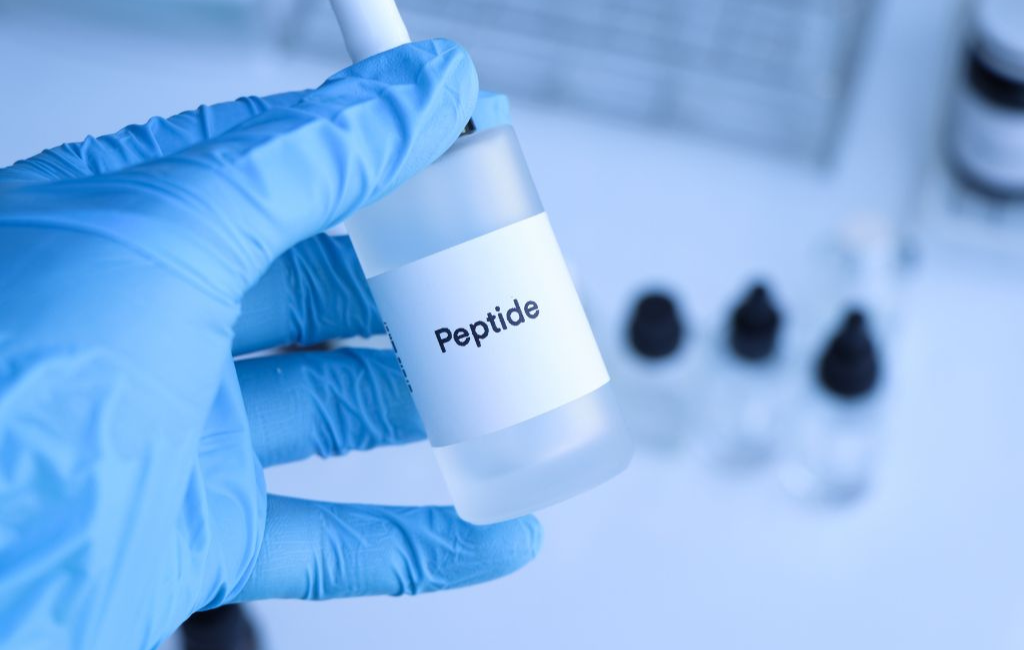Exploring Peptides and Body Wellness
In recent years, peptides have gained significant attention in the field of health and wellness. These short chains of amino acids are the building blocks of proteins and play a crucial role in various biological functions. From skincare to muscle growth, peptides are being explored for their potential benefits in enhancing body wellness. This article delves into the science behind peptides, their applications, and their impact on overall health.
Understanding Peptides
Peptides are composed of two or more amino acids linked by peptide bonds. They are smaller than proteins and can easily penetrate the skin and intestines, making them effective in various therapeutic applications. Peptides are naturally occurring in the body and can also be synthesized for specific purposes.
Types of Peptides
- Signal Peptides: These peptides send signals to cells to perform specific functions, such as collagen production in the skin.
- Carrier Peptides: They transport essential elements like copper to cells, aiding in wound healing and skin repair.
- Neurotransmitter Peptides: These peptides can influence neurotransmitter release, potentially affecting mood and cognitive functions.
- Enzyme Inhibitor Peptides: They can inhibit enzymes that break down collagen, helping to maintain skin elasticity.
Peptides in Skincare
Peptides have become a popular ingredient in skincare products due to their ability to promote collagen production and improve skin elasticity. Collagen is a protein that provides structure to the skin, and its production decreases with age, leading to wrinkles and sagging skin.
Benefits of Peptides in Skincare
- Anti-Aging: Peptides stimulate collagen production, reducing the appearance of fine lines and wrinkles.
- Improved Skin Barrier: They enhance the skin’s natural barrier, protecting against environmental damage.
- Hydration: Peptides help retain moisture, keeping the skin hydrated and plump.
Research has shown that topical application of peptides can lead to visible improvements in skin texture and firmness. A study published in the Journal of Cosmetic Dermatology found that a peptide-rich cream significantly reduced wrinkle depth and improved skin elasticity after eight weeks of use.
Peptides and Muscle Growth
In the fitness industry, peptides are being explored for their potential to enhance muscle growth and recovery. Certain peptides can stimulate the release of growth hormone, which plays a key role in muscle development and repair.
Popular Peptides for Muscle Growth
- Growth Hormone Releasing Peptides (GHRPs): These peptides stimulate the pituitary gland to release growth hormone, promoting muscle growth and fat loss.
- IGF-1 (Insulin-like Growth Factor-1): IGF-1 is a peptide that mimics the effects of insulin, aiding in muscle growth and recovery.
- BPC-157: Known for its healing properties, BPC-157 can accelerate muscle recovery and reduce inflammation.
A study published in the Journal of Clinical Endocrinology & Metabolism found that GHRPs significantly increased lean body mass and reduced body fat in healthy adults. These findings suggest that peptides could be a valuable tool for athletes and fitness enthusiasts looking to enhance their performance.
Peptides in Weight Management
Peptides are also being investigated for their potential role in weight management. Certain peptides can influence appetite regulation and metabolism, making them a promising option for those looking to manage their weight.
Peptides for Weight Management
- Melanotan II: This peptide can reduce appetite and increase fat oxidation, aiding in weight loss.
- GLP-1 (Glucagon-like Peptide-1): GLP-1 is involved in appetite regulation and can promote feelings of fullness.
- CJC-1295: Known for its ability to increase growth hormone levels, CJC-1295 can enhance metabolism and fat loss.
Research published in the journal Obesity Reviews highlights the potential of GLP-1 analogs in reducing body weight and improving metabolic health. These peptides could offer a new approach to weight management, particularly for individuals struggling with obesity.
Safety and Considerations
While peptides offer promising benefits, it is important to approach their use with caution. The safety and efficacy of peptides can vary depending on the type and dosage. Consulting with a healthcare professional before starting any peptide regimen is advisable.
Potential side effects of peptide use may include allergic reactions, changes in blood pressure, and hormonal imbalances. It is crucial to source peptides from reputable suppliers to ensure quality and purity.
Conclusion
Peptides hold significant potential in enhancing body wellness, from improving skin health to supporting muscle growth and weight management. As research continues to uncover the benefits of peptides, they may become an integral part of health and wellness strategies. By understanding the different types of peptides and their applications, individuals can make informed decisions about incorporating them into their wellness routines.
